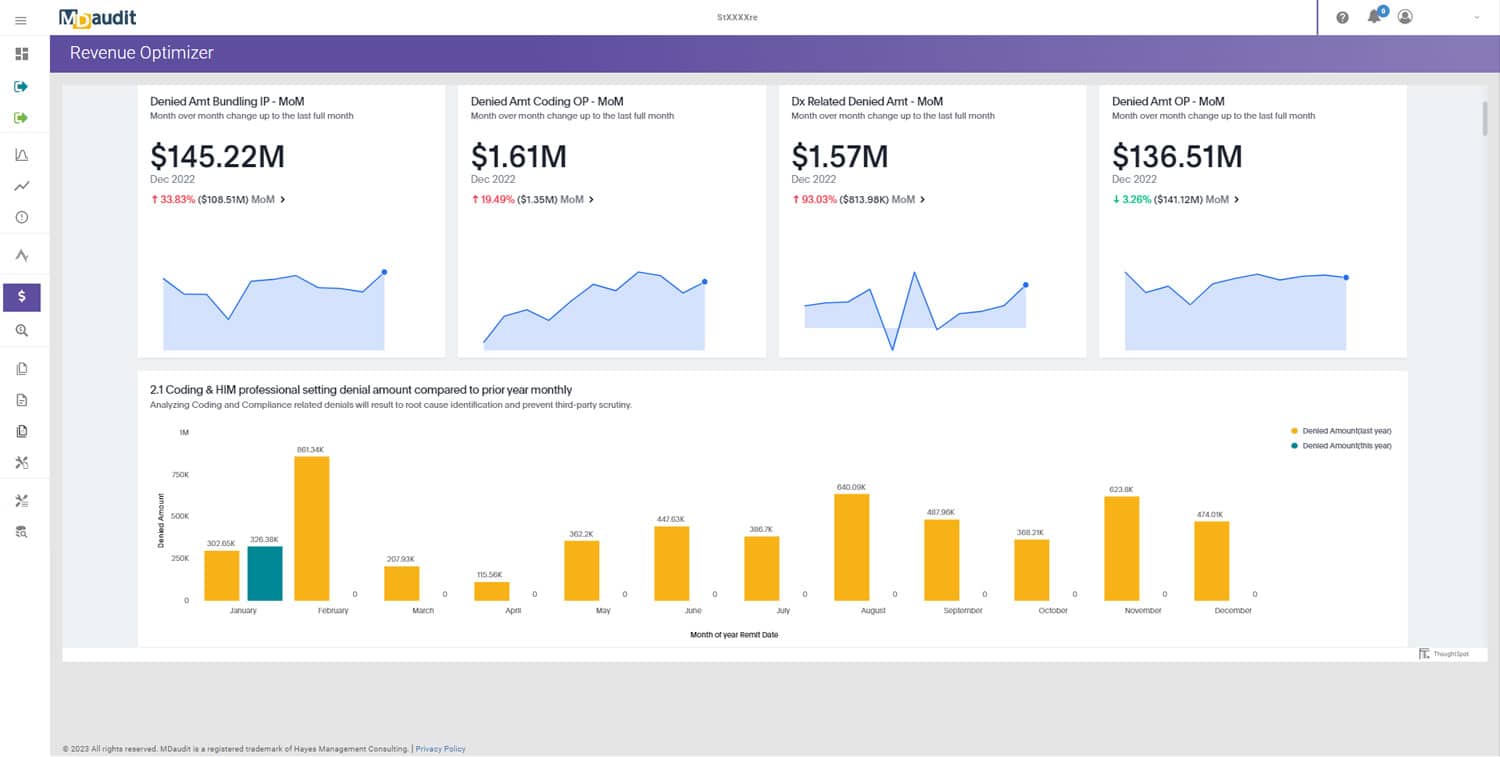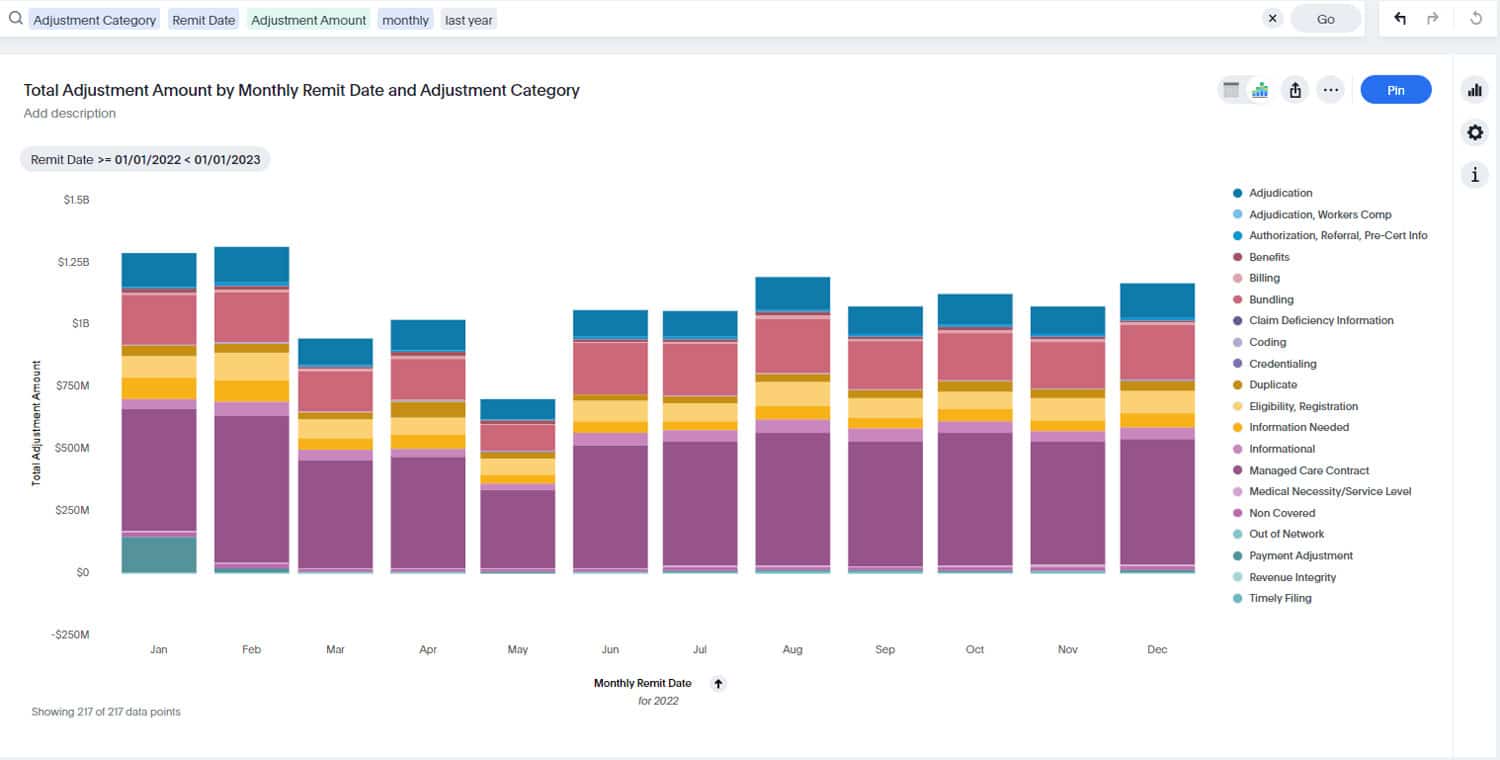Wellesley, MA — March 22, 2024 —MDaudit, an award-winning provider of technologies and analytic tools that enable the nation’s premier healthcare organizations to minimize billing risks and maximize revenues, has released a series of automation and reporting enhancements to its billing compliance and revenue integrity platform workflows. Made based on insights and feedback from MDaudit customers – including more than 70 of the nation’s top 100 health systems with $1 billion in net patient revenue – the enhancements are designed to eliminate noise and streamline results around system reports and workflows.
“This quarterly release introduces several features that enhance MDaudit’s intelligence for our customers,” says Desiree Akande, Senior Manager of Training and Engagement with MDaudit. “These enhancements reduce manual work, promote standardization, and enable smoother, more efficient workflows.”
The upgrades to MDaudit’s Procedure Utilization, Audit Workflow, External Audit Workflow, Denials Predictor, and Risk Areas allow the platform to work even smarter on behalf of billing compliance and revenue integrity teams.
For example, Procedure Utilization, a claim-based analytics tool available with the Billing Risks module displays procedural billing patterns for easy analysis and trend detection, now includes new data for HB outpatient claims, expanding the tool’s value to its users.
Audit Workflow Enhancements
Several of the platform’s most robust enhancements target the auditing process. Audit Workflows, which provides a single-source solution for prospective and retrospective reviews of all chart types, now allows users to set minimum dates of service when performing re-audits to prevent overlapping service dates.
Audit Automation has been enhanced by allowing users to designate required fields for Case Completion within their configuration which will automate the case status function upon completion of adding findings as well as automatically update the Audit or Entity status once a case is no longer in a New status.
External Audit Workflow, which leverages AI and automation to centralize, simplify, and streamline management of third-party audits, further supports case-level data capture and reporting with the addition of the Case Target Type and Case Target Value fields. Expanded ad hoc target reporting functionality simplifies reporting and aggregation by splitting out target values.
Denials Predictor Enhancements
MDaudit’s Denials Predictor (DP), a pre-payment charge review engine that augments claim scrubbers for high dollar claims, was the focus of numerous customer-inspired enhancements. Most notably:
- Comments have been added to the Denials Predictor response section to improve support for multiple users coordinating claim corrections and research into the responses.
- An additional filter for Actionable vs. Informational rule responses makes it easier to find rules that can be immediately acted upon to avoid costly denials.
- The ability to exclude Rules and Rules Groups removes noise in the data and allows users to focus on the types of rules they are most concerned with.
- Codes identified within the DP Configuration Liveboard will prepopulate into the DP Configuration Page streamlining the code selections for appropriate denial predictor configuration.
Users can now also filter DP results to match codes configured, limiting results on claims flagged for multiple rules to only those on the claim line containing the code that triggered the review.
Risk Area Enhancements
Several upgrades were made to key risk areas, including the ability to define a Normative Data Source for E&M Risk Areas so they are triggered using the most relevant data for comparison for that organization – an enhancement that is particularly beneficial for pediatric providers.
MDaudit now allows the creation of organized audits from Risk Areas. By enabling audits to be either organized or non-organized within a pathway, users can now control data source and case searches for New Provider and New Coder audits.
Finally, by increasing options for case searches within organized audits, users are now able to edit an existing rule or add a new one to ensure that all entities will have available cases in the Case List tab. The enhancement also allows users to remove entities when not enough services match the audit requirements and to add cases from a specific rule that they want to target. Customers can also add cases to in-progress entities even when other entities have been completed, which is especially important for prospective organized audits.
“These enhancements to the MDaudit platform were inspired by customer feedback and we are excited to deliver them to support billing compliance and revenue integrity teams through simplified, streamlined workflows,” says Akande.
About MDaudit
MDaudit is a leading healthcare technology provider that partners with the nation’s premier healthcare systems to reduce compliance risk, improve efficiency, retain revenue, and enhance communication between cross-functional teams. Bringing solutions to an industry in transformation, MDaudit enables organizations to minimize billing risks and maximize revenue with an AI-powered, integrated, cloud-based platform that leverages the power of collaboration between people and sophisticated technology to keep humans at the forefront of decision-making while driving sustainable change. To learn more, visit www.mdaudit.com/.







